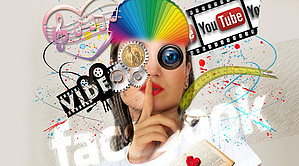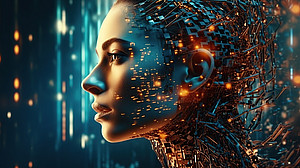How is our creativity changing in the context of increasing digitalization?
Creativity and the Internet
Memes, do-it-yourself videos and myths about creativity - the internet and digital media offer a lot of more or less creative content. Online creativity refers to the use of the internet as a medium and context for creative activity. It serves as a point of contact for those seeking inspiration, as a tool for creating new content, but also as a way to showcase one's own work. We examine the question of how digital environments such as social media influence our creativity. To what extent do we use the internet for creative behaviors? How is creativity represented in the digital space? What new creative phenomena and trends are emerging online? We investigate creativity on the web in the context of psychological studies and using methods such as data mining and natural language processing.
Further reading:
- Ceh, S. M., Christensen, A. P., Lebuda, I., & Benedek, M. (in press). #Creativity: Exploring lay conceptualizations of creativity with Twitter hashtags. Creativity Research Journal. doi.org/10.1080/10400419.2023.2214472
- Ceh, S. M., & Benedek, M. (2021) Where to share? A systematic investigation of creative behavior on online platforms. Creativity - Theory, Research, and Application, 8(1), 109-123. doi.org/10.2478/ctra-2021-0008


Creativity and artificial intelligence
It is hard to escape the current hype surrounding artificial intelligence. Initial results indicate that some large language models (LLMs) such as GPT-4 match or outperform humans in standardized creative tasks. But humans also are curious and have drive to create. That's why we're looking at how we can harness that the ever-increasing creative potential of artificial intelligence in the service of human creativity. We are exploring the interaction between humans and AI in the context of co-creative tasks with the aim of challenging and encouraging our creativity.